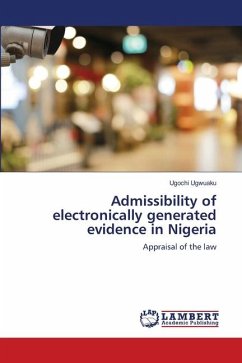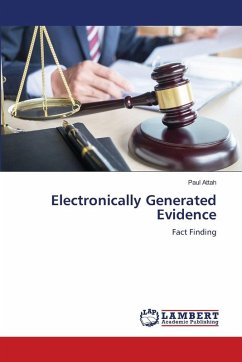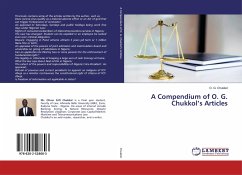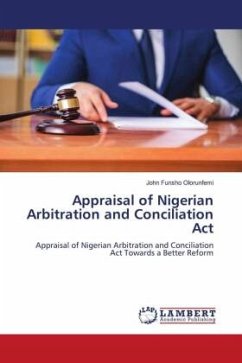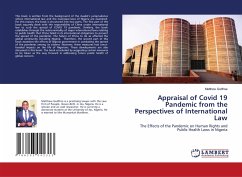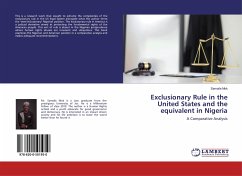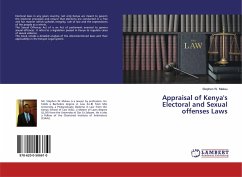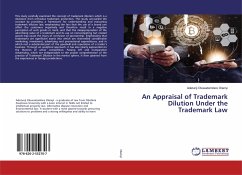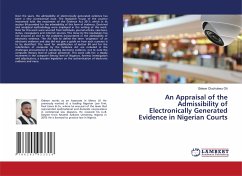
An Appraisal of the Admissibility of Electronically Generated Evidence in Nigerian Courts
Versandkostenfrei!
Versandfertig in 6-10 Tagen
27,99 €
inkl. MwSt.

PAYBACK Punkte
14 °P sammeln!
Over the years, the admissibility of electronically generated evidence has been a very controversial issue. The legislative house of the country intervened with the enactment of the Evidence Act 2011; which in its section 84 provided for the admissibility of this form of evidence. Doctrinal and analytical methodology were employed in the writing of this work. Data for this work were sourced from textbooks, journal articles, case laws, status, newspapers and internet sources. This move by the lawmakers has not ensured an end to the problems encountered in the admissibility of electronic evidenc...
Over the years, the admissibility of electronically generated evidence has been a very controversial issue. The legislative house of the country intervened with the enactment of the Evidence Act 2011; which in its section 84 provided for the admissibility of this form of evidence. Doctrinal and analytical methodology were employed in the writing of this work. Data for this work were sourced from textbooks, journal articles, case laws, status, newspapers and internet sources. This move by the lawmakers has not ensured an end to the problems encountered in the admissibility of electronic evidence. The Act fails to define the term 'originator' of an electronic evidence and also did not give a guide on how such a person is to be identified. The need for simplification of section 84 and for the redefinition of computer by the Evidence Act are included in the challenges encountered in tendering electronic evidence, not to note the computer literacy level of judicial personnel. This work calls for; a steady increment in the computer literacy level of litigators, forensic investigators and adjudicators; a broader legislation on the authentication of electronic evidence and more.



